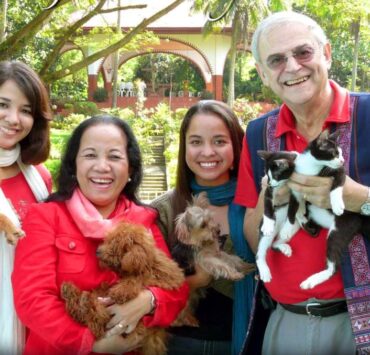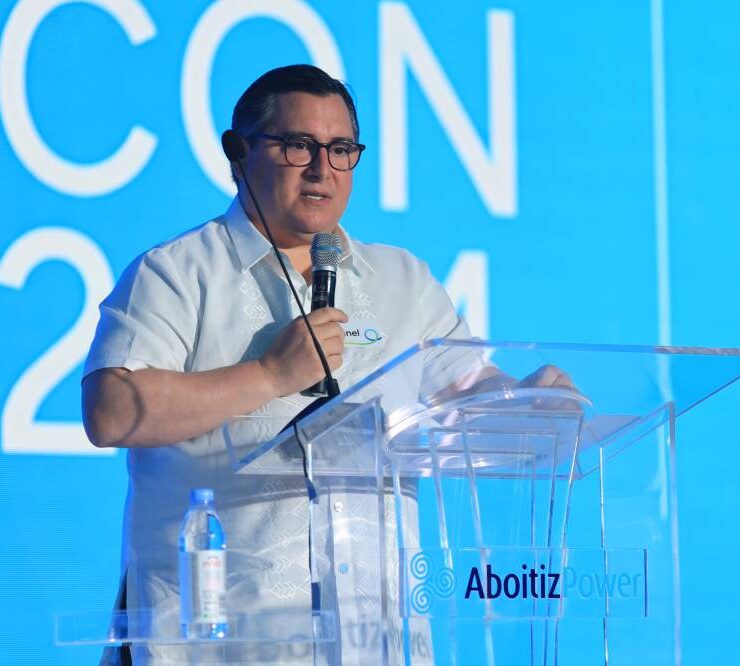A family recipe for success: The Dees’ culinary dynasty

That the apple doesn’t fall far from the tree is true for the Dee family of restaurateurs.
Enrico “Rikki” Dee and his wife Elizabeth “Beng” Dee started out in the late 1980s with a small restaurant on Pasay Road before opening the first Chin’s Express outlet in the food court of SM City North Edsa upon the invitation of Henry Sy.
Soon they were opening other outlets like Inihaw Express and Handaan in food courts located in different malls. They put up what would become the Filipino food chain Mesa and made a name for themselves, eventually bringing in foreign food concepts like Tim Ho Wan, Hawker Chan, Pound, and llaollao.
Their son Eric remembers roaming around his parents’ food businesses as a kid, befriending the cooks and waiters. “[My siblings and I] were known as ‘banquet’ kids,” he told Lifestyle.
“My earliest memories of being in a restaurant are moments I treasure. I literally grew up in the restaurant. I dabbled in everything but what I was keen on learning was what the real world is like and understanding the world and how it works through people and experiences. I’m happy I was shown the ropes early on, thus helping me realize what I was meant to do,” Eric said.
He shared that he and his siblings were not expected or required to join the family business, but that all of them ended up working at Foodee Global Concepts in various capacities.
Entrepreneurial spirit
“All of my kids grew up thinking that someday they would run a business, whether an existing one or a new venture, not necessarily in the food industry,” Rikki said. “But somehow everyone was inclined toward that direction.”
Eric agreed. “I think my dad wanted us to learn how to be entrepreneurs, whether it be in the food industry or not. He groomed us early on to learn how to work at an early age and understand that work should be fun, that it should be something we like doing. We were not required to join the family business. In fact, he encouraged us to work outside of the business.”
Eric would go on to take on summer jobs at fast-food chains before interning at investment banking firms. He also tried his hand at sales and marketing before going back to what he loved, which is hotel and restaurant management.
As Foodee’s chief operating officer, Eric heads the business units of Mesa, Tim Ho Wan, Pound, and Hawker Chan.
Does his dad give him free rein when it comes to Foodee matters? Eric said Rikki “gives them the space to spread their wings, and lets us fail or succeed [to gauge] how we turn those failures into learning experiences.”
Fortunately, Eric has proven to be a quick learner. During the first year of the pandemic, he and the Foodee team were one of the first to pivot. He told this writer then, whether it was ECQ (enhanced community quarantine) or GCQ (general community quarantine), “we know how many people will be working in the restaurant, what hours, and which restaurants are open. We’re learning as we go, and improving in that sense.”
Foodee, with Eric at the helm, was one of the first to establish eight cloud kitchens in Manila, Cebu, and Pampanga. At the time, he said, “I think ghost kitchens, cloud kitchens are the next big thing. They complement what we already have. When it comes to food delivery, our objective is to ensure that what customers ultimately receive is of high quality. It’s a new revenue stream for us.”
Empowered
Dad Rikki should be proud. “I empowered my kids early on, and each one of them has found their own niche,” he said.
Eric runs a tight ship and said that while he has learned to listen to his team and what they have to say, his job is to guide them and make sure they are setting themselves up for success.
“I try not to micromanage, but in some cases micromanagement is needed. Do I see myself in my dad? My wife Bea says yes. I sometimes disagree but catch myself at times, speaking and acting like my father. I guess the saying, ‘the apple doesn’t fall far from the tree’ is true in my case.”
“My parents were always working and I was always happy to tag along. My dad would always remind us of two things that have stayed with me ever since: ‘Save for a rainy day’ and ‘Always be prudent and frugal.’”
Rikki has his eye on the future. While he is aware that they have weathered much in the restaurant industry, he has set his sights on the next 30 years.
“We at Foodee started the roadmap for coming decades. We have to stay resilient amid the ever-changing market preferences. Needs have evolved and habits have changed, so we need to continue innovating and reinventing to stay relevant. That’s what we have done the past years and that’s what we will continue doing.”
Despite being forced to close almost 40 stores during the pandemic, Foodee was able to feed 40,000 people. “It was our way of giving back to the community. We were so touched by the volunteers early on that we committed to sending out 200 packed meals daily to hospitals, military camps, and local government units, but then we added to that number as time went by,” Rikki said.
This led to the establishment last year of Feed (Foundation of Enrico and Elizabeth Dee) that sets up kitchens offering free lugaw in calamity-hit areas and evacuation centers.
With the restaurant industry back in business, Foodee is ending the year with over 300 stores nationwide across all their brands.
“We’re looking forward to opening another 30 to 40 stores next year,” Rikki said.





















